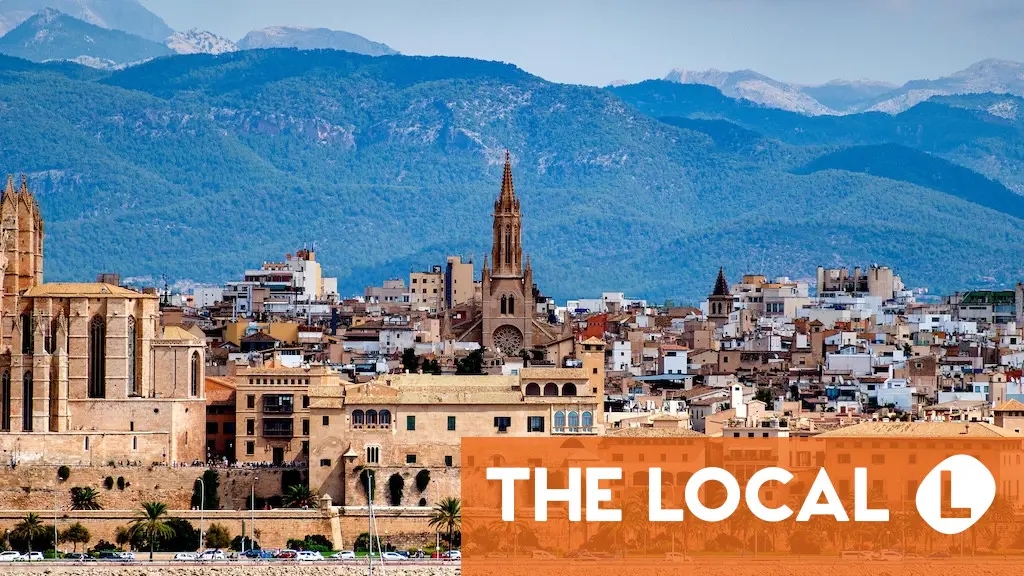Spain’s Mallorca to ban new tourist rentals, party boats and hostels

Mallorca continues its fight against overtourism with rules to prohibit new tourist apartments, party boats and the creation of new hostels in the capital of Palma.
Authorities in Palma, the capital of the island of Mallorca, have announced they want to introduce a complete ban on new tourist rentals in the city, as well as party boats and the opening of new hostels too.
The news was recently announced by the Mayor of Palma, Jaime Martínez, along with the First Deputy Mayor for Tourism, Javier Bonet.
READ ALSO: Mallorca's second home owners to be allowed only one car
Palma currently has 639 legal tourist rental units in single-family homes, which is now set to be the limit. Any future rentals will be banned, and if the current ones are closed, they will not be replaced.
Tourist rentals in apartments is already prohibited, although illegal rentals are very common.
The plan is for the measure to come into force “as soon as possible” as already gained approval from Podemos and the Partido Popular last year.
The ban on new rentals will apply throughout the whole municipality of Palma.
Martínez also announced a commitment by the City Council and the Balearic Islands Port Authority (APB) to ban so-called 'party boats' on the Paseo Marítimo, the city's main coastal promenade. Taking place mainly in the summer months, they create many problems for residents due to the noise and crowds they generate.
Lastly, Martínez ratified a ban on new hostels that had already been approved. He also referred to the need to "reconvert existing hostels that the left has approved over the past eight years," which he described as "places disguised as youth hostels that operate as low-class hotels”.
It means that all hostels in Palma will be inspected to confirm that they are carrying out the activities for which they are authorised.
READ ALSO - Taxes, bans and fines: The new mass tourism measures on Spain's Balearics
The mayor also pointed out that tourism in Palma is beginning to change though, and that what they’ve been doing so far is working.
He highlighted the reduction in tourist seasonality in Palma, which has decreased by 2.01 percent in the last two years and by 4.57 percent compared to 2018, a record year before the pandemic.
This trend is also accompanied by an increase in tourism spending of around 15 percent, which according to Martínez "demonstrates a change in the quality" of the industry.
The official also presented data from an Exceltur report, which points to a reduction in illegal tourist accommodation in the Balearics' biggest city. The number of properties on the tourist rental market during the month of August fell by 17.4 percent in Palma.
Mallorca is one of the parts of Spain that's been suffering the most from the effects of overtourism, and there have been numerous anti-tourism protests over the last two years.
Residents are particularly angry about the number of tourist rentals driving up housing costs and creating a deficit of homes for locals.
According to data from property portal Idealista, Palma has four of the most expensive neighbourhoods in the entire country and it's one of the most expensive cities in Spain for cost of living.
Please sign up or log in to continue reading
thelocal





